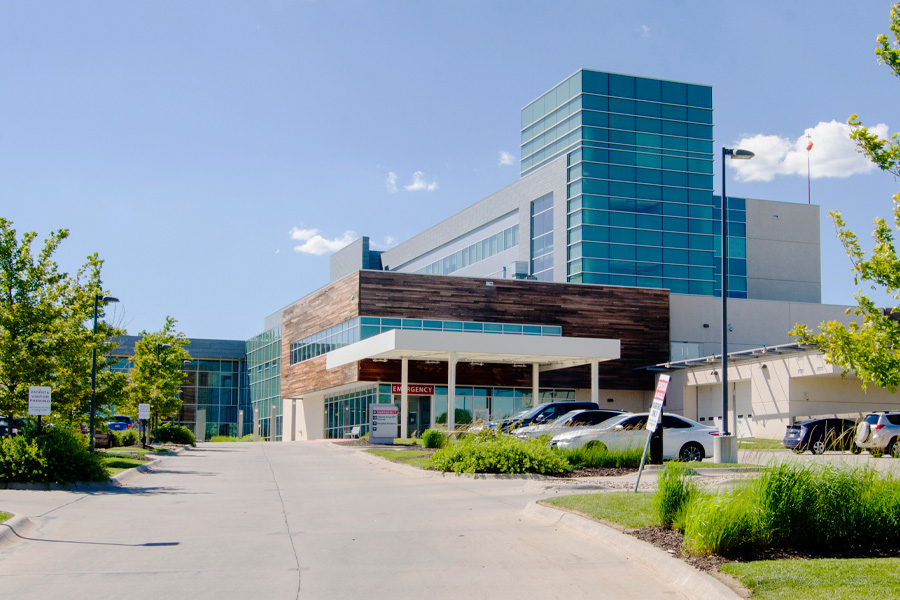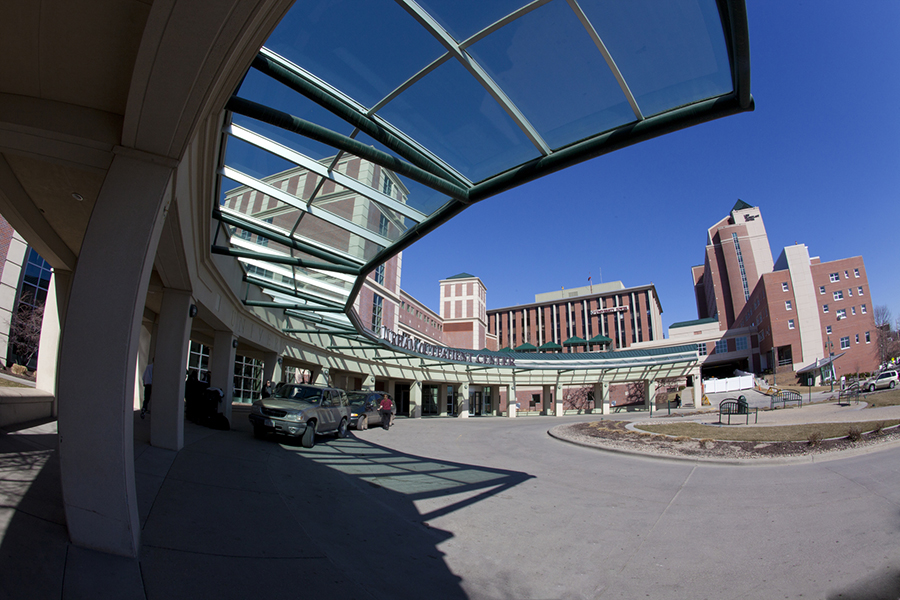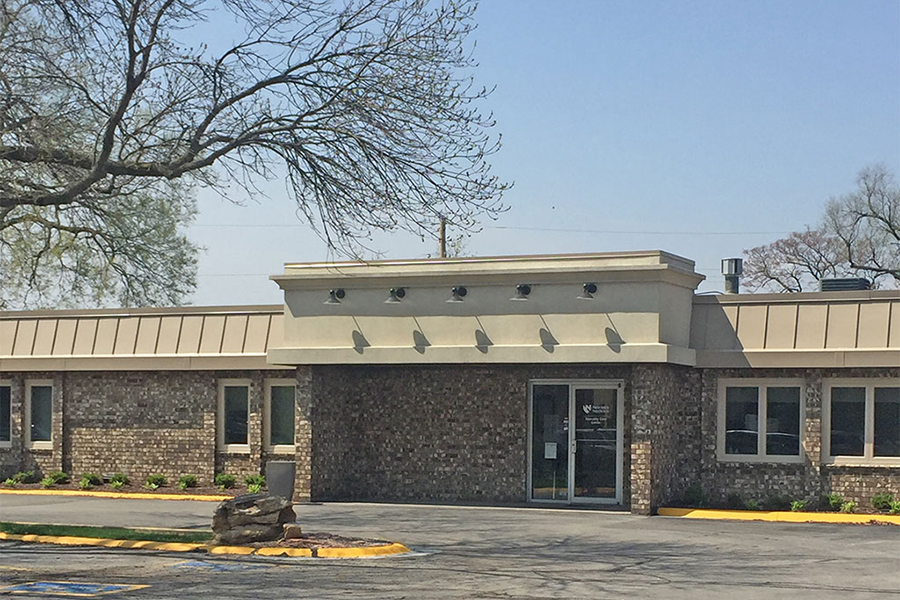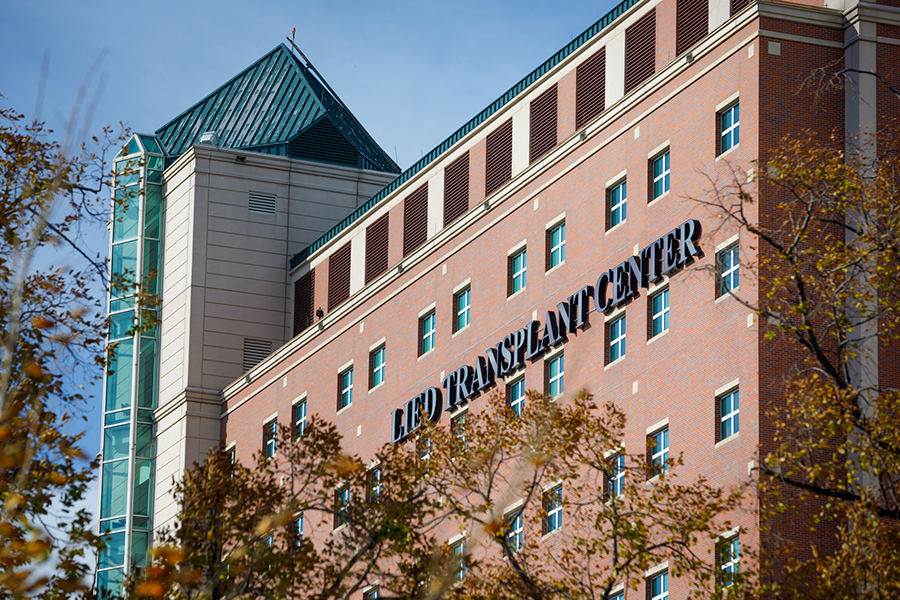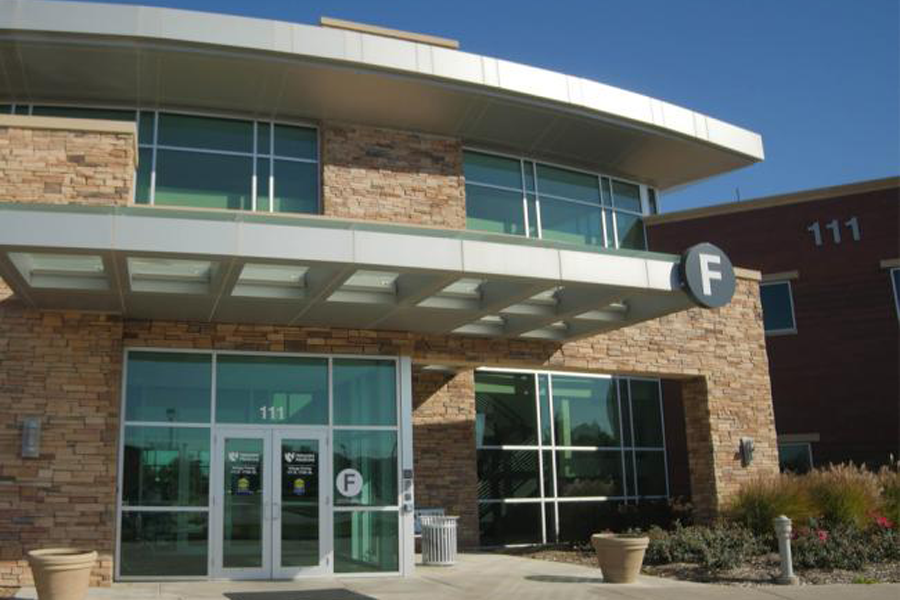Patient Care
The UNMC Division of Infectious Diseases provides an array of clinical care across a variety of settings.
Our infectious disease clinicians provide expert clinical care in both inpatient and outpatient settings in collaboration with primary care clinicians and other subspecialty providers. Our inpatient providers see patients at Nebraska Medicine and Bellevue Medical Center as well as providing telehealth care.
Our providers also offer specialty clinics focused on both general infectious disease problems as well as immunocompromised patients, including oncology and solid organ transplant patients and those with HIV. Travel medicine care is also available including yellow fever vaccine. Finally, we provide specialized care to patients with mycobacterial infections including TB and non-tuberculous mycobacteria (NTM) in collaboration with our colleagues in the UNMC Division of Pulmonary, Critical Care and Sleep Medicine.
We use innovative methods like these programs to minimize infectious disease risks for the UNMC community:
Antimicrobial Stewardship Program
We broadly share our methods and knowledge with others, notably through the ASP, which seeks to optimize the utilization of antimicrobial agents to realize improved patient outcomes, a positive effect on antimicrobial resistance, and an economic benefit.
Infection Control Assessment and Promotion
In addition to the infection prevention mission at all University of Nebraska campuses, our infectious diseases faculty support a wide variety of community facilities throughout the state with the Nebraska ICAP program.
Antimicrobial Stewardship Assessment and Promotion
The UNMC Division of Infectious Diseases also supports facilities like critical access hospitals, long-term care facilities, ambulatory surgical centers, dialysis centers and more through the ASAP program.
Patient Care Specialties and Services
The general infectious diseases service is the primary teaching service at UNMC and cares for a variety of adult patients with both common and uncommon infections throughout our facility. Common problems include endocarditis, CNS infections including meningitis and encephalitis, fevers of unknown origin, osteomyelitis, infections in the intensive care unit, post-operative infections, management of drug-resistant pathogens, and the management of more common conditions such as urinary tract infections, pneumonia, and skin and soft tissue infection.
The general infectious diseases team consists of an attending physician, an infectious diseases fellow, and three to four Internal Medicine residents. Medical and pharmacy students along with pharmacy residents may also be part of the team. The faculty who support this service are all excellent teachers and enjoy working with trainees.
Our division also supports numerous general infectious diseases clinics at multiple locations. The clinics focus on ensuring follow-up care of previously hospitalized patients along with providing consultative care to new ambulatory infectious diseases referrals. UNMC infectious diseases providers support a multidisciplinary non-tuberculous mycobacterial (NTM) Infection Clinic where patients are evaluated and treated for this difficult to treat infection. This clinic occurs with faculty support from the UNMC Division of Pulmonary, Critical Care and Sleep Medicine and focuses on the overall management of these medically complex patients.
The community infectious diseases service provides services to facilities outside of the main campus at UNMC. It is one of the few fully dedicated academic community infectious disease services in the country. The service started in December 2018 and provided new opportunities for the division to expand its variety and continuity of patient care. The service primarily sees patients with general infectious disease issues but also provides specialized care in orthopedic, oncology and transplant infectious diseases as needed. In addition, we are fully involved in the education of fellows and participate in academic research activities.
The orthopedic infectious diseases service treats patients with complex bone and joint infections. We are particularly focused on co-management of prosthetic joint and other surgical hardware infections with our orthopedic, vascular, and plastics and reconstructive surgery colleagues.
This service was created in 2018 to support our orthopedic surgery team and improve the quality of prosthetic joint infection treatment as UNMC becomes the tertiary referral center of choice for orthopedic surgeons in the Midwest.
We see patients in the inpatient setting at the Nebraska Medical Center main campus and OrthoNebraska with clinics at Durham Outpatient Center main campus.
The transplant infectious diseases program at UNMC/Nebraska Medicine offers exceptional clinical care for solid organ transplant recipients in both inpatient and outpatient settings. We collaborate closely with each transplant team to ensure clinical practices meet the latest standards and provide robust educational support.
Our specialized service manages infectious complications in solid organ transplant recipients and evaluates patients considered for heart transplants, left ventricular assist devices (LVADs), liver transplants, and those in the intestinal rehabilitation program. Since 2009, our program has evolved to support our expanding world-class transplant programs, including liver, kidney, pancreas, small bowel, multivisceral, heart, and lung transplantation. Performing over 400 organ transplants annually, we work closely with surgical and sub-specialty colleagues to enhance patient care and advance research.
We manage a wide range of infection challenges, including opportunistic infections such as CMV and endemic fungal infections, surgical-site infections, C. difficile, viral respiratory infections (including COVID-19, RSV, and influenza), and recurrent urinary tract infections in kidney transplant recipients. We also provide guidance on preventive strategies, including prophylactic antimicrobials, vaccination protocols, and travel medicine for transplant patients. Additionally, we offer cutting-edge research and interventional clinical trials in areas like novel antiviral and antifungal agents, monoclonal antibodies, and vaccine candidates.
Our dedicated team includes transplant infectious diseases faculty, advanced practice providers, rotating fellows, and outpatient clinic nurses, all committed to comprehensive care. We see patients at Nebraska Medical Center and the Multi-Organ Transplant Clinic in the Lied Center on UNMC's main campus. Referring patients to our transplant infectious diseases program ensures they receive expert, multidisciplinary care tailored to the unique challenges of transplant medicine. Our collaborative approach and commitment to excellence make us a leading choice for managing infectious diseases in transplant recipients.
The oncology infectious diseases program is dedicated to the treatment and prevention of infectious complications in patients receiving cancer therapy. We care for patients undergoing surgery, chemotherapy, and/or radiation therapy for hematologic and solid tumor malignancies. In addition, we provide consultative care for patients receiving hematopoietic stem cell transplantations and CAR T-Cell therapy. This service was created in 2000 to support UNMC’s nationally renowned, NCCN-designated cancer center. We work in close collaboration with our hematology, oncology and surgical sub-specialty colleagues in patient care, research and education. We see patients in the inpatient and outpatient setting at the Fred and Pamela Buffett Cancer Center on the UNMC campus. We work with three dedicated advanced practice providers and rotating fellows.
Our infectious diseases providers, in conjunction with providers from the Division of Pulmonary, Critical Care and Sleep Medicine, provide care for patients with bronchiectasis and non-tuberculous mycobacterial (NTM) infections. UNMC providers with extensive experience and training in how to diagnose and manage these complex infections work with their colleagues to serve as a regional referral center. In addition, the clinic supports novel clinical trials seeking to better inform the management of NTM infection and offer patients treatment options not available elsewhere. Learn more
UNMC infectious diseases providers are available to provide pre-travel advice including vaccinations, medications, and health instructions. They are also able to evaluate and manage any infections acquired while traveling. Learn more about travel vaccines
Clinical care for patients with HIV/AIDS is provided at the Specialty Care Clinic located at 52nd and Leavenworth Street.
Where We Practice
Patients must have a physician referral for an infectious diseases consultation. Our faculty sees patients at the locations listed below and telehealth appointments are also available.
Additional Resources
Nebraska Biocontainment Unit
UNMC is home to the internationally-acclaimed NBU, which is one of only a few biocontainment units in the U.S. Equipped to care for patients with highly hazardous communicable diseases, the NBU cared for several patients with Ebola virus disease during the outbreak in West Africa in 2014 as well as the first COVID-19 patients in the state of Nebraska.
Global Center for Health Security
The Global Center for Health Security at UNMC is home to the national Training, Simulation and Quarantine Center, which features the nation's only federal quarantine unit and simulated biocontainment units for advanced experiential training.
Click the link below to view a list of our infectious diseases specialists and learn more about the services we provide and where we practice.
